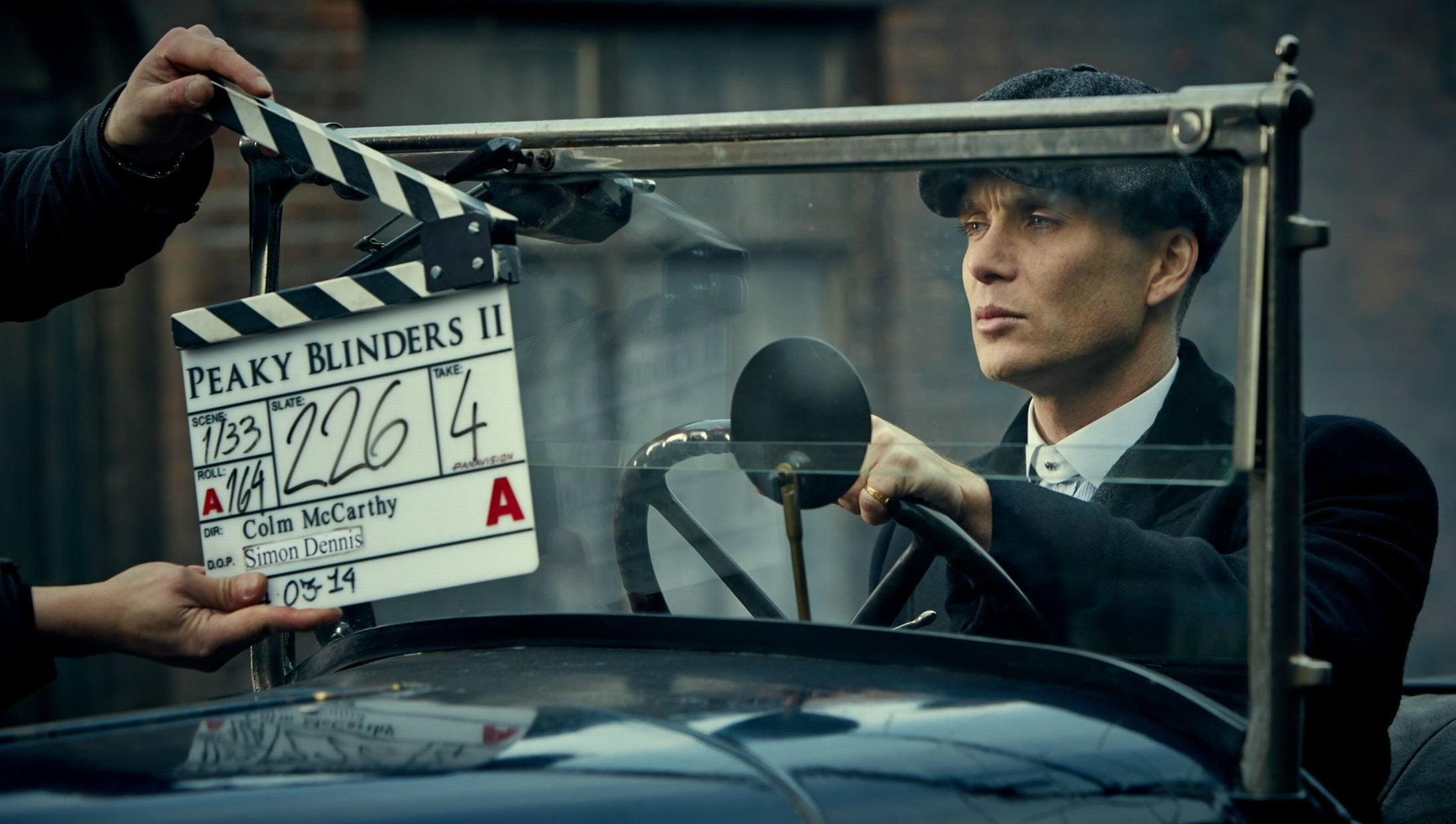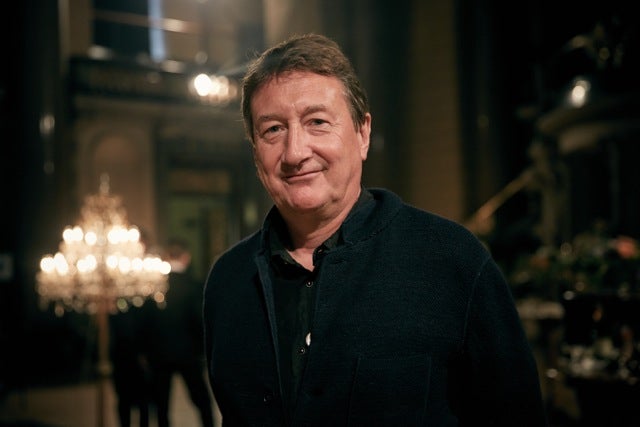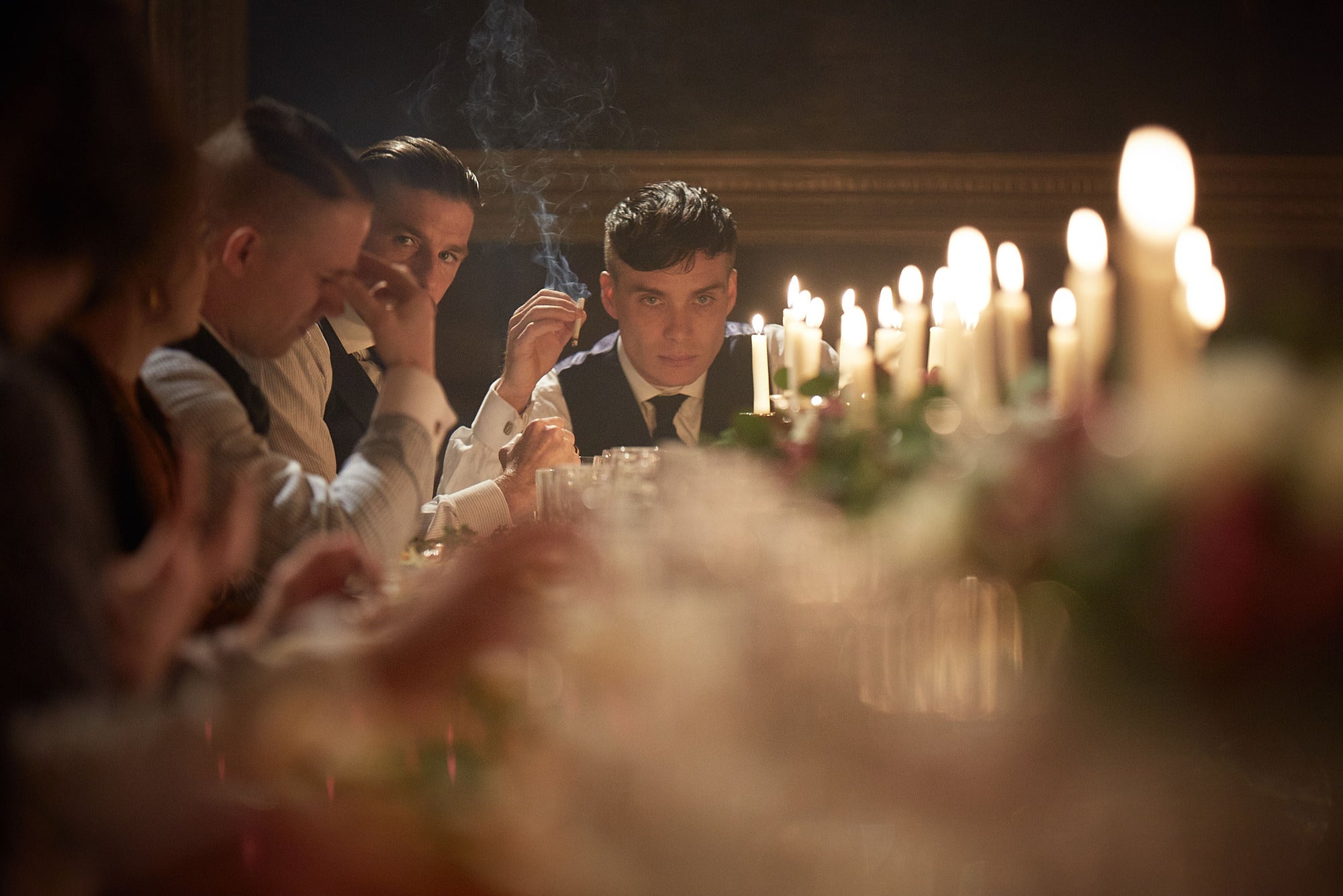Beers With... Peaky Blinders creator Steven Knight: Breaking America, Snoop Dogg and giving the period drama some grit
I sat down with the man behind the Shelbys to discuss how a BBC Two drama about a specific moment in Birmingham history became a global obsession.

Your support helps us to tell the story
From reproductive rights to climate change to Big Tech, The Independent is on the ground when the story is developing. Whether it's investigating the financials of Elon Musk's pro-Trump PAC or producing our latest documentary, 'The A Word', which shines a light on the American women fighting for reproductive rights, we know how important it is to parse out the facts from the messaging.
At such a critical moment in US history, we need reporters on the ground. Your donation allows us to keep sending journalists to speak to both sides of the story.
The Independent is trusted by Americans across the entire political spectrum. And unlike many other quality news outlets, we choose not to lock Americans out of our reporting and analysis with paywalls. We believe quality journalism should be available to everyone, paid for by those who can afford it.
Your support makes all the difference.[Beers With… is a new feature consisting of long-form conversations with interesting people over pints]
Printable version here.
Today we are drinking a couple of Morettis at the Soho Hotel in London.
CH: So you've actually told the world how Peaky Blinders is going to end [when the air raid sirens of World War II sound].
SK: Yeah.
I think that's actually a masterstroke. A lot of shows, Game of Thrones... Breaking Bad... as brilliant as they are, the fan discourse gets caught up in how the shows will finish, that's what people concentrate on, whereas now, because you have that thing in place -
A destination.
Yeah, now people are going to be more interested in and focused on the journey.
That ending is definitely the ambition, whether we get there or not I don't know. I do want it to be the story of a family between two wars.
Was it a conscious decision to reveal it? When did you come up with it?
I think at the end of the first series was the first time I thought we could take this all the way.
And I guess there's no reason why it couldn't pick up at a later stage, post-war.
It could, yes. It depends how successful the show remains but we might do a bigger jump, a five-year year leap or something.
it's funny, period dramas in the UK have kind of always had this tradition of being about -
Upper middle class people, haha.
Yeah. Sleeping with the maid... this very light-hearted, twee stuff. Why is that do you think? is it in the tradition of Austen?
I think it might be. There's such a wealth of literature from the 18th century and 19th century, George Eliot...Jane Austen... that's all about a genteel high society, relationships, all of that stuff. There wasn't ever really, apart from Dickens, a literary evocation of working class life. So there was sort of nothing to draw from. Peakys is all based on word of mouth and stories that I heard.
It's a shame because it paints Britain's past as so immaculate and not as messy as it was.
Yeah exactly, even down to the way people speak. Like, "I do not believe", "I cannot believe" - why does everybody say "cannot" and not "can't", because they did say "can't" back then.
I think that's what's partly made Peaky Blinders resonate so much in the US, that it's a little bit more dirty than the usual British period pieces.
I mean it's so popular there, it's a real cult following.
It feels like about the only UK show than can a candle to the US right now. Even though Sherlock and Luther have a big American following, I can't imagine shows like that coming from one of those networks, HBO... AMC... whereas Peaky Blinders I really can.
Yeah, and the people who have responded to it have been incredible. My heroes have contacted me and said how much they love it which is great.
~ Pause to order more beer ~
When did you notice that it had started to crest in the US?
We heard that people were responding to it, then I got a message from Dennis Lehane, the novelist [and The Wire alum.], to say how much he loved it, and then I got one from Michael Mann, the film director, and it just got bigger and bigger. Whenever I went to LA the first thing people said in the meeting, no matter what it was about, was how much they loved Peakys. So Hollywood was really going for it which is always a good start. Also Snoop Dogg is a big fan.
What?!
He came to London about a year ago, and his agent contacted my agent and said he wants to meet you to talk about Peaky Blinders. We spent like three hours in St Martin's Lane Hotel just building joints and he's talking about how the show reminds him of how he got into gang culture. It's incredible, I mean I don't know where the connection is but it's really taking off.
I suppose the camaraderie among the gangs is something that's transferable even if Birmingham might be another world. That's amazing that you spent three hours with Snoop Dogg, I love that.
It was surreal. We've kept in touch.

I guess as well it's popular with the US audience because Birmingham probably seems quite exotic. When you're in the US everyone expects you to either be cockney or posh - that's the two accents they want to hear - no-one ever comes up with the Birmingham accent.
It's true, it's something they're not expecting.
I think as well, obviously Peaky Blinders has started to take off globally but it's been kind of nascent until now. I think season 3 could really be the one, especially with the day-and-date broadcast on Netflix.
Yeah, I think so. I hope so!
in terms of the historical elements in the show, I wonder how you get the balance right, because in a way it's nice to be able to have that anchor to tie the story to and it's important to do it if you're depicting a specific time, but you don't want to become so beholden to it that you can't have fun and do something that's a little bit different and not necessarily how it would have been.
Exactly. I think it's taking real events and then imagining what could have happened among those real events. This series will deal with a real organisation that was around at the time, very powerful people who were basically plotting against the Labour government and trying to prevent what they thought would be the revolution. It's fascinating that they even exist, it's sort of a secret history, and that's who Tommy ends up fighting.
The anachronistic music in the score, was that an easy decision?
It didn't even feel like a decision. during the edit we played music and it just felt right.
There's only so far you can go in terms of mood with music of the era, isn't there.
Yeah, you have to be very careful with what you use. But what's happened with the third season, again one's heroes have started to approach us, and there will be an announcement about what music's being used but it's pretty mind-blowing who's come to us and said: "we want you to have our music".
It must be hard though because sure as incredible as I'm sure some of those acts are, if it's not quite right you've still gotta be like "No, sorry..."
Of course. We've been very lucky though, some amazing pieces of music have come in.
Boardwalk Empire went down the route of just using music from the time and I think, not that it wasn't a good show, but it didn't work quite as well score-wise.
Another thing that really interests me about Peakys is the drug aspect, obviously in a lot of modern shows as soon as someone starts to go down the drugs route it's kind of the signpost that -
They're going to fall apart.
That the character's going to fall apart - that's just the trope - but because it's in that time period, and this includes nicotine as well as coke and stuff, that no-one really knows the full effects... it's an interesting aspect.
Yeah because cocaine was only recently illegal in 1924. it was part of society for a while and there was this huge Daily Mail outrage in 1922 about people taking cocaine and as a result, sleeping with Chinese people and black people. That was the problem with the drug for them it was bizarre, I thought that was quite interesting as part of the whole story.
When Arthur was down in the depths of his cocaine addiction last season he obviously wasn't thinking about the consequences, but I wonder if Tommy, in his eternal wisdom, does he think he's just having a bit of fun and it's fine or do you think he kind of foresees that coke's probably not a thing Arthur should be abusing?
I think that he has an awareness because of his opium use in season one. In two Arthur's taking cocaine and by three, he's met someone and she's introduced him to religion, so that's his preferred drug now. We'll see how that pans out.
It's funny the parallel with the political situation right now, because so many years later drug policy is still all over the place in terms of the understanding of the effects.
Absolutely. Nothing is learned.
Costume is obviously a huge part of the show. I know it's not your world and I'm sure you give a huge amount of free rein to the department, but do they ever bring out ideas and you're just like "No, it's not right."
Well not really, they're so good and independent of anybody because they do the research and they replicate the actual look of the clothes. And the response to the clothes... I've had fashion people approach me about it and we're actually going to do it, we're gonna do a clothing line called Garrison and it's going to be the look of the Peaky Blinders.
The clothing is an important thing to get right, isn't, it because it tells you so much about the characters. How much they do or don't follow fashion gives you a real sense of who they are.
Yeah and there's something about the fact that it's men who are taking real care about how they look. Since the 60s the default uniform has been jeans, t-shirt, sweatshirt, but these are people who took time to get dressed.
It's strange isn't it, any macho figures these days, or until very recently, would see taking care of their appearance as something stupid.
I know! it was the opposite.
And cinematically very useful!
Haha yeah.

I was thinking about the Peakys the other day when I was listening to this podcast about the rise of Genghis Khan's empire, and how his father had a comparatively tiny army of X many thousand people and they went and sacked cities of hundreds of thousands, not because they were particularly smart just because they were incredible savage -
And scary, they'd terrify them.
And I guess, is that comparable, because with the Peaky Blinders these are uneducated men who are not very with it but pretty efficacious?
I think that Tommy is the key element in that he's smart, but yeah it's like the Krays, the reason they became so powerful was because they were so vicious and cruel. When they turned on someone, everybody was so scared that they did what they were told. So with a small amount of muscle they were able to have a massive impact, just like the Peakys.
It starts to feel like Michael's becoming a lot like Tommy, he's got that same kind of withdrawn personality and intelligence.
Yeah, that's exactly it.
The idea for it to be a mini-series, six episodes a season, does that help... one of the charges people make about TV is that it looks like TV it doesn't look like film, do you think limiting it to six has helped you give it that cinematic look that you wouldn't have been able to achieve if it had been 13?
The BBC series has always been six so that's why we've always done that many, but I think that will change and it will go to eight. I'm doing a thing called Taboo right now which is eight, but interestingly I think they're reducing that, because they feel that very thing - that the quality's better if they do fewer episodes in a series.
It's interesting, I don't know what the magic number is, but to me as an audience member, four would feel like too few.
Have there been big budgetary concerns with the show?
Yeah, there always is.
Compared to film as well I guess it's a lot tighter.
There's always a concern over budget with film too but people are more extravagant when they're making a feature. In television everything's tight, everything's paired down and it's just a question of making it look expensive.
A thing that always frustrates me as I'm sure it does you is these questions coming up time and time again about rape in TV and supposed gratuity. It's odd because we're at a time when everyone's trying to highlight how much rape is a serious issue and how it's everywhere in society and we need to do something about it, but then for some reason when it's reflected in art people say "why are you putting it in?" It's like, "okay, should we just plaster over it?"
Mmm yeah. I think we've got the right balance in our show. My solution is always what would really happen? How would it really be? And the truth is that of course women were abused at that time.
But the whole Twitter vitriol thing, it hasn't played on your mind when you're writing those kind of scenes?
No, I don't actually look at Twitter.
Haha, that's probably good advice in general.
I've heard that when you're writing no-one really knows what's going to happen. is your writing style kind of frenetic then, do you just sit down and see what comes out?
Yeah, I don't know where it's gonna go, and it's best not to know I think, because if you plan it out it will be very logical and measured, whereas if you just let it happen, then whatever happens, happens.
And looking ahead, Taboo, is there much you can say about that?
It's Tom Hardy, it's TV and it's coming in October. Very different.
I look forward to it. Thanks a lot, Steve.
Thanks, great to meet you.
Join our commenting forum
Join thought-provoking conversations, follow other Independent readers and see their replies
Comments